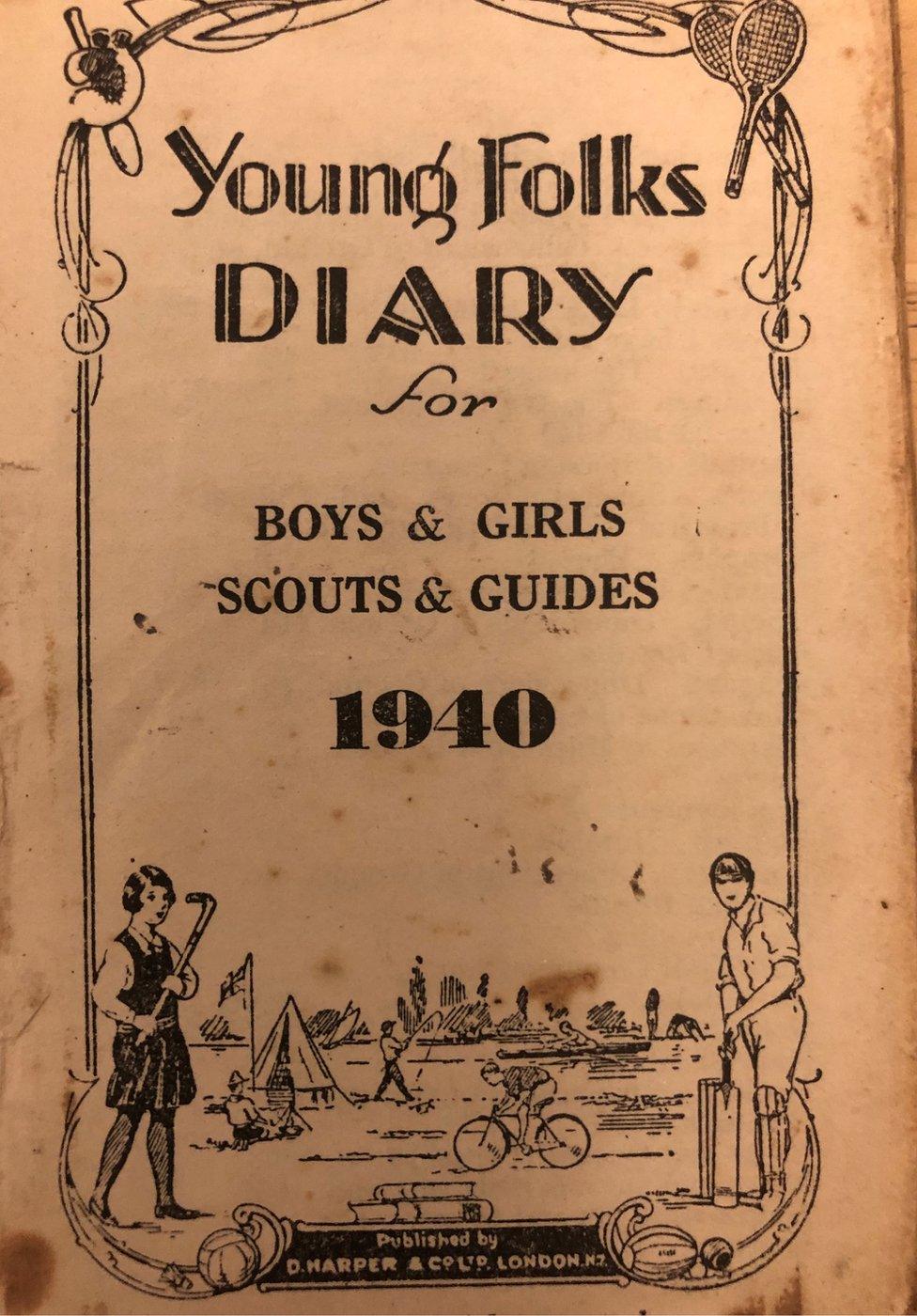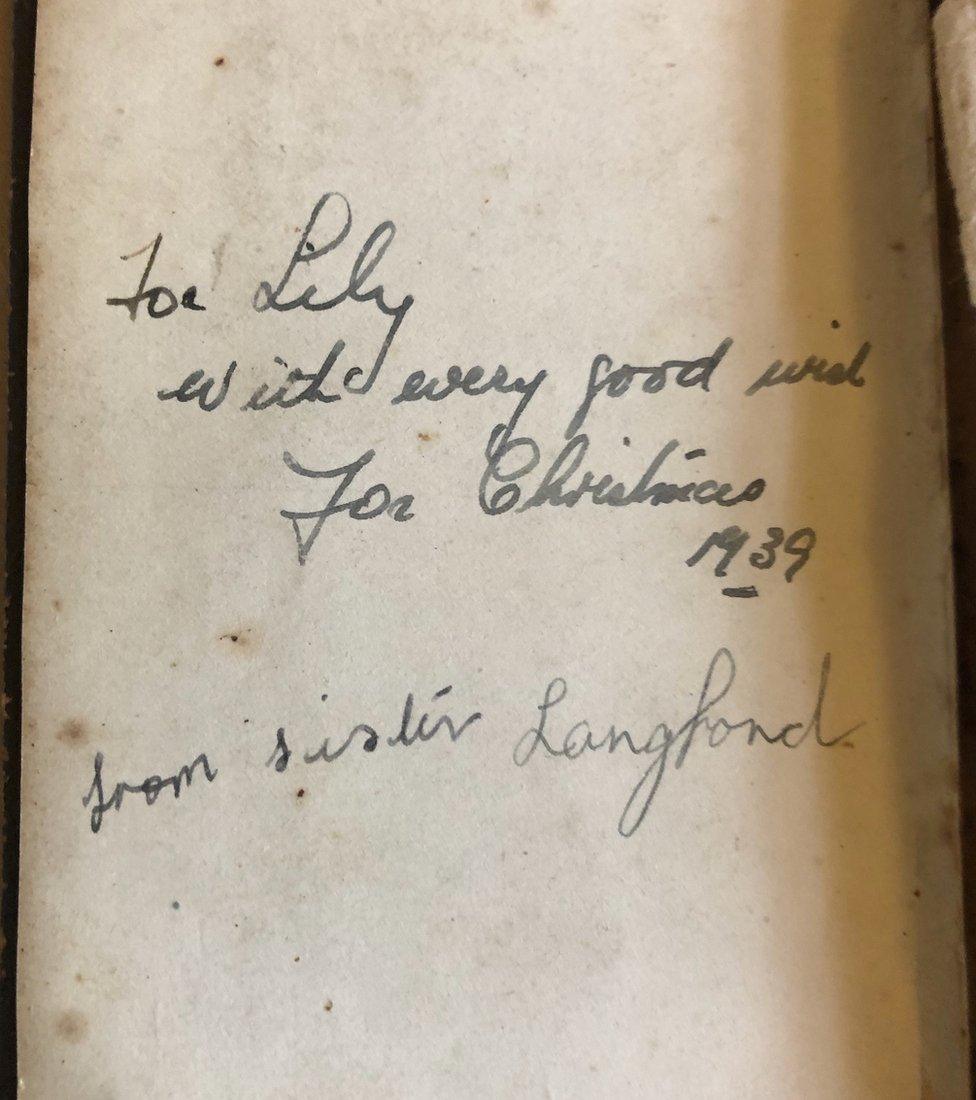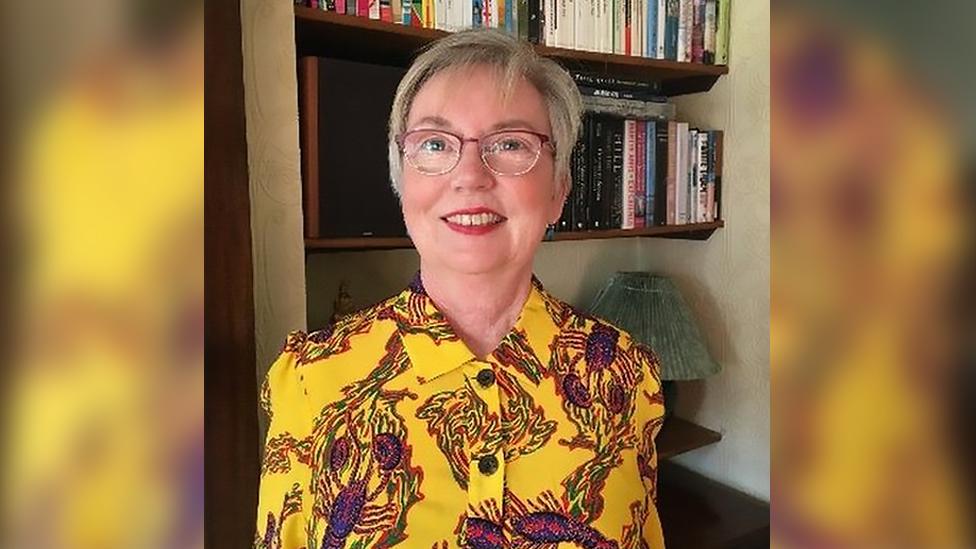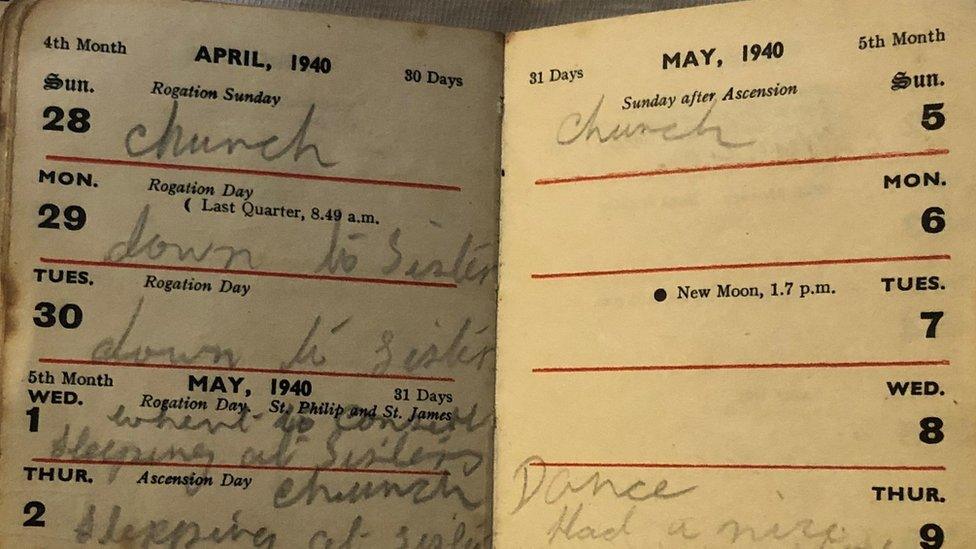Hunt for the family of a Southwold WW2 diary girl
- Published

The 1940 wartime diary which Roz Goddard is hoping to reunite with the family of Lillian H Green
A woman is hoping to track down the family of a young girl after she came into possession of her World War Two diary.
Creative writer and poet Roz Goddard discovered the pocket diary in belongings she won for £30 at auction.
Ms Goddard, of Dudley, West Midlands, said the journal, belonging to Lillian H Green of Southwold, Suffolk, was "intriguing".
She is hoping to reunite the personal piece of history with surviving family.
Ms Goddard said the book had been gathering dust in a box at her home and she had rediscovered it during a recent tidy-up.

The dedication written inside Lillian H Green's wartime diary by Sister Langford
It belonged to Lillian who lived in St Edmunds Road, Southwold, before moving to Dudley on 29 June, 1940.
The year-long diary shows a fascinating insight into the young girl's life, including her apparent affection for a person called Harry.

Roz Goddard, who is attempting to trace the family of wartime diary writer Lillian H Green
Ms Goddard, a former poet laureate for Birmingham, now hopes to return the diary to Lillian's family.
She was fascinated by little clues to the youngster's identity, including a message written by Sister Langford, leading her to speculate that Lillian attended a convent school.
She said: "I hope someone from Lillian's family, or perhaps even Harry's, will recognise it and we can reunite it with them.
There are also a lot of short references to "church" and "sisters".

Roz Goddard is trying to trace the family of the writer of a wartime diary
The diary was part of personal effects which formed part of an auction lot Ms Goddard won for £30 about 15 years ago in Old Hill in the West Midlands.
"There are various entries about going to dances and seeing Harry", she added.
"Then on 2 June 1940, there was a reference that said 'Harry went away' so I wondered if that was reference to him going away to war."
"It is quite intriguing to think 'Did she stay here?', 'Did she marry here?', Ms Goddard added.
She posted her appeal to Twitter, external in the hope of finding someone who may be able to solve the mystery.

Find BBC News: East of England on Facebook, external, Instagram, external and Twitter, external. If you have a story suggestion email eastofenglandnews@bbc.co.uk, external